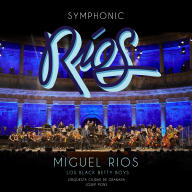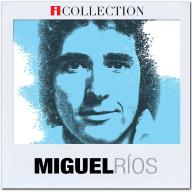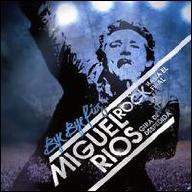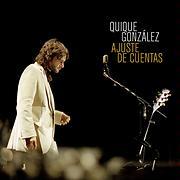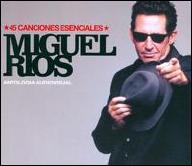Ríos was born in June 1944. As a student, he grew closer to his passion by singing with his school's chorus and listening to the radio every time twist songs were on the air. By working at a music store, he had the opportunity to meet people related to the local music scene who gave him a chance to start singing in front of an audience, starting as a backup singer. After recording a demo, he decided to send it to a major label in Madrid. The waiting ended in 1961 when the artist was contacted by Philips. That same year, Ríos moved from Granada to the Spanish capital city, recording an EP called El Twist in 1962 as Mike Ríos. Two years and six EPs later, Ríos was starring in his first movie, Dos Chicas Locas, Locas. In 1965, the singer left Philips, and after temporarily working with Sonoplay, signed up to Hispavox, releasing the smash-hit single "Rio," and later his first full-length, Mira Hacia Ti. In May 1970, his second album, Despierta, came out and included "Himno a la Alegría," based on Beethoven's Ninth Symphony; it became Ríos' first song to reach the Billboard charts.
After leaving Hispavox in the mid-'70s, Ríos self-produced an album released by Polygram in 1977. By that time, the artist was getting worldwide recognition. In 1982, he consolidated his career with the live double album Rock Rios, recorded in Madrid. The recording was considered among the most important works of modern Spanish rock by music critics and fans. Rock Rios sold over 450,000 copies in less than a year. 1984's La Encrucijada became one of his best-known recordings and has been reissued several times. The following year, Ríos brought his brand of symphonic rock across the Atlantic. He became the first rock & roll performer to play -- and fill -- the giant bull-fighting ring Plaza de Toros in Mexico. He issued one more recording that decade before delivering the hit album Directo al Corazón in 1991.
While his recording was less frequent in the last decade of the 20th century, Ríos' touring profile remained high. In 1996, he participated in a popular tour with Ana Belén, Víctor Manuel, and Joan Manuel Serrat. In 2003, La Academia de las Artes y las Ciencias de la Música presented Ríos with its highest prize, the Premio de Honor, a lifetime achievement award. The following year, he hit the charts again with 60Mp3. Produced by John Parsons, a Welsh musician based in Spain who was part of Ríos' support band, it was recorded in the singer's home studio in Granada. The set featured guest appearances from poet Luis García Montero and Sevillian guitarist Raimundo Amador. While compilations continued to appear regularly, Ríos managed to issue the studio recording Solo o en Compañía de Otros in 2008, and two years later, Bye Bye Ríos: Rock Hasta el Final, supposedly his final album, hit the Spanish rock charts.
In 2018, Rama Lama issued the third volume in its Ríos career overview series, the compilation Vol. 3: Historia de una Busqueda [1974-1977]. A special edition of Ríos' 1970 sophomore album, Despierta: 50 Aniversario, arrived the following year. ~ Drago Bonacich, Rovi



